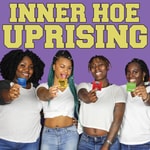Aria Code – Details, episodes & analysis
Podcast details
Technical and general information from the podcast's RSS feed.

Aria Code
WQXR & The Metropolitan Opera
Frequency: 1 episode/38d. Total Eps: 50

Recent rankings
Latest chart positions across Apple Podcasts and Spotify rankings.
Apple Podcasts
🇬🇧 Great Britain - musicInterviews
28/07/2025#100🇩🇪 Germany - musicInterviews
28/07/2025#57🇺🇸 USA - musicInterviews
28/07/2025#32🇬🇧 Great Britain - musicInterviews
27/07/2025#70🇩🇪 Germany - musicInterviews
27/07/2025#34🇺🇸 USA - musicInterviews
27/07/2025#39🇬🇧 Great Britain - musicInterviews
26/07/2025#38🇺🇸 USA - musicInterviews
26/07/2025#36🇬🇧 Great Britain - musicInterviews
25/07/2025#22🇺🇸 USA - musicInterviews
25/07/2025#32
Spotify
No recent rankings available
Shared links between episodes and podcasts
Links found in episode descriptions and other podcasts that share them.
See all- https://www.metopera.org/
26 shares
- https://karmanirvana.org.uk/
8 shares
- http://rhiannongiddens.com/
7 shares
RSS feed quality and score
Technical evaluation of the podcast's RSS feed quality and structure.
See allScore global : 89%
Publication history
Monthly episode publishing history over the past years.
Love and Other Drugs: Gounod's Roméo et Juliette
Season 4 · Episode 8
mercredi 17 janvier 2024 • Duration 54:14
Shakespeare’s “Romeo and Juliet” is the most famous love story in the Western canon. It’s a tale so embedded in our culture — one that has seen so many iterations and retellings — it might feel hard to appreciate its original pathos, and the way it perfectly distills the intersections of young romance, idealism, and rebellion.
In this episode, host Rhiannon Giddens and guests take a fresh look at this classic by focusing on the character of Juliet and her pivotal decision to take the friar’s draught, a concoction that will help her feign death long enough to escape an arranged marriage and run away with Romeo. It’s both an act of tremendous courage and one that sets their tragedy in motion.
In Charles Gounod’s operatic retelling, the aria Juliet delivers as she wrestles away her fear is so difficult that it’s often cut from productions. But it’s a pivotal moment, and a testament to Juiet’s agency. Soprano Diana Damrau is up to the task, and delivers a rendition of “Amour, ranime mon courage” — otherwise known as the “poison aria” — from the stage of the Metropolitan Opera.
THE GUESTS
Soprano Diana Damrau is among the most celebrated opera singers of her generation. She’s graced the stages of opera houses all over the world, and sung the role of Juliette at both The Metropolitan Opera and La Scala. After her debut as Juliette in 2016, it quickly became a favorite. For her, Gounod’s “Roméo et Juliette” is “one of the most beautiful operas ever written.”
Yannick Nézet-Séguin serves as music director for the Met Opera orchestra, the Philadelphia Orchestra, and Montreal’s Orchestre Metropolitain, among many other appointments and collaborations with esteemed orchestras. In his opinion, “Roméo et Juliette” beats out “Faust” as Gounod’s best opera.
Emma Smith is a Shakespeare scholar and critic at the University of Oxford. Among her publications is the book “This Is Shakespeare,” which was a Sunday Times bestseller and has been translated into several languages. Smith frequently works with theater companies on their productions of Shakespeare plays and consults for film and television.
Acclaimed British author and theater director Neil Bartlett, whose novels include “The Disappearance Boy” and “Address Book,” directed “Romeo and Juliet” for the Royal Shakespeare Company in London. He says the experience leaves him feeling “wrung dry with admiration.”
You Don't Own Me: The Myth and Magic of Bizet's Carmen
Season 4 · Episode 7
mercredi 3 janvier 2024 • Duration 53:47
Carmen is maybe the most famous heroine in all of opera. She’s a woman of Romani descent living in 19th century Spain, sensual and self-confident, aware of the power she wields over men — and she enjoys it. In her signature aria, popularly known as the “Habanera,” she describes herself as a bird who can’t be captured. True to her own word, Carmen — and what she represents — is hard to pin down.
When “Carmen” premiered in Paris in 1875, it was deemed wildly immoral. Carmen becomes intrigued by a soldier, Don José, who initially pays her no attention. She seduces him, Don José abandons his fiancée to run away with her, and one thing leads to another (this is opera, after all) — he winds up murdering Carmen in a fit of jealous rage. One interpretation is that this is the story of a man giving into temptation and meeting his downfall. A more modern view would position Carmen as a proto-feminist. She’s a woman who refuses to be controlled, and that puts her life in danger.
But perhaps Carmen’s greatest irony is that she is both a complex character and a full-blown stereotype of Romani women. In this episode, host Rhiannon Giddens and guests unpack the myth and the magic of Georges Bizet’s "Carmen," and Clémentine Margaine brings it home with a performance of “L’amour est un oiseau rebelle” from the Met stage.
THE GUESTS
French mezzo-soprano Clémentine Margaine first performed in “Carmen” as a member of the children’s chorus. Shortly after graduating from the Paris Conservatory, she joined the ensemble of the Deutsche Oper Berlin, where she sang her first performances in the title role. Since then, she’s performed Carmen at opera houses all over the world.
Susan McClary is a pioneer in feminist music criticism. She’s a musicologist at Case Western Reserve University whose research focuses on the cultural analysis of music, both the European canon and contemporary popular genres. She’s authored 11 books, including "Feminine Endings: Music, Gender, and Sexuality" and the Cambridge Opera Handbook on “Carmen.”
Ioanida Costache is an assistant professor of ethnomusicology and an affiliate of the Center for Comparative Studies in Race and Ethnicity at Stanford University. She is of Romanian-Roma descent, and her work explores the legacies of historical trauma inscribed in Romani music, sound, and art. Her family likes to pass on the story of the time her great-grandfather performed the cimbalom for President Roosevelt at the 1939 New York World’s Fair.
Rosamaria Kostic Cisneros wears many hats. She is a professional dancer, dance historian and critic, Romani studies scholar, Flamenco historian, as well as a sociologist, curator and peace activist. A research-artist at Coventry University’s Centre for Dance Research, she works to bring arts and culture to vulnerable groups. She was introduced to flamenco by her Spanish-Roma mother during their frequent trips to Seville.
To Be Or Not To Be: Dean's Hamlet
Season 3 · Episode 17
mercredi 17 novembre 2021 • Duration 41:58
“To be or not to be, that is the question.” It’s hard to think of a more famous line from a more famous play. In this iconic speech from Shakespeare’s Hamlet, the troubled Danish prince asks whether this whole life thing is even worth it. But “to be or not to be'' is not the only question we’re asking this week.
When everyone knows this line so well, how do you make it fresh again? How does adapting Shakespeare’s play into an opera change our understanding of the text? In this episode, host Rhiannon Giddens and her guests explore one of the most famous speeches in literature, its transformation into opera, and why Hamlet’s brooding soliloquy continues to intrigue artists and audiences four centuries later.
Tenor Allan Clayton created the role of Hamlet in Brett Dean’s opera at the Glyndebourne Festival in 2017. Dean wrote this vocally and dramatically challenging part specifically for Clayton: he would have him read monologues from Shakespeare’s original in order to get a sense of his voice and once even emailed him changes during an intermission.
Opera dramaturg Cori Ellison worked closely with composer Brett Dean and librettist Matthew Jocelyn throughout the development of Hamlet. She was the staff dramaturg at the Glyndebourne Festival from 2012 through 2017, where Hamlet premiered, and has worked with opera companies around the world, including as a staff dramaturg at New York City Opera and Santa Fe Opera.
Actor and director Samuel West has worked across theater, film, television, and radio, but he was obsessed with Shakespeare's Hamlet. He starred as the Danish prince (whom he describes as “a floppy-shirted noodle”) for one year and three days with the Royal Shakespeare Company. But who’s counting?!
Jeffrey R. Wilson is a faculty member in the Writing Program at Harvard, where he teaches a course called “Why Shakespeare?” He feels that Shakespeare is still so popular because of the deep and varied problems his plays present: textual, theatrical, thematic, and ethical problems. He is the author of three books, including Shakespeare and Trump and Shakespeare and Game of Thrones.
Potion, Emotion, Devotion: Wagner's Tristan und Isolde
Season 3 · Episode 16
mercredi 3 novembre 2021 • Duration 39:46
When we talk about “falling in love,” we talk about it like it is something that just happens. Suddenly the ground opens up and we are falling for somebody, as if there is no choice in the matter. This is everywhere -- in movies, TV shows, novels, and of course, in opera. Take Wagner’s Tristan und Isolde - while Tristan is bringing her across the Irish sea to marry his uncle Marke, King of Cornwall, they both drink a love potion and fall instantly, madly in love with each other.
But Isolde is still betrothed to King Marke, who catches them in a passionate night of love, and one of his men stabs Tristan, who later dies from the wound. Standing over his lifeless body, Isolde sings of her love for Tristan in her final climactic aria, the “Liebestod,” as their love triumphs over even death itself. Host Rhiannon Giddens and her guests explore forbidden passion, agonizing desire, and what it means to “fall” in love.
Soprano Jane Eaglen is known for her portrayals of Wagner’s most commanding heroines, including Brünnhilde and Isolde. She actually met her husband during her first-ever production of Tristan und Isolde at Seattle Opera, and she would find his seat in the audience each night and sing to him from the stage. She is on the voice faculty at the New England Conservatory.
Alex Ross is the music critic for The New Yorker and author of The Rest is Noise and Listen to This. He spent nearly a decade writing his most recent book, Wagnerism: Art and Politics in the Shadow of Music, which explores Wagner’s wide and complicated influence on art and politics. When he first heard Wagner’s music, he thought it was “messy, unsteady, and confusing,” but Tristan und Isolde was the opera that changed his mind.
Mandy Len Catron has been studying and writing about romantic love for ten years. She wrote the essay, “To Fall In Love With Anyone, Do This,” for The New York Times “Modern Love” column about how she and a friend fell in love by answering 36 questions and staring into each other’s eyes--almost like a modern-day love potion. The essay went viral shortly after its publication in 2015. She has also written the book How To Fall in Love With Anyone: A Memoir In Essays. To spice things up, she’s currently working on a book about loneliness.
Blanchard's Fire Shut Up in My Bones: A Boy of Peculiar Grace
Season 3 · Episode 15
mercredi 13 octobre 2021 • Duration 42:45
This week we’re decoding with the man who wrote the code - Terence Blanchard, composer of Fire Shut Up in My Bones. Not only is it the work that reopened the Met after its 18-month pandemic shutdown, but it’s also the first opera by a Black composer ever to be performed there. Based on the 2014 memoir of the same name by New York Times columnist Charles M. Blow, Fire Shut Up in My Bones is a coming-of-age story about his childhood in a tiny town in northwest Louisiana.
From a young age, Charles knew he was different, not like his brothers or the other boys. After being sexually assaulted by his older cousin, he was consumed by shame, and especially when he began to feel attraction toward boys as well as girls. The South was not the place to be questioning one’s sexual identity as a Black man in the 1970s and 80s. But in the aria “Peculiar Grace,” he puts his questions aside and looks forward to a brighter future. Host Rhiannon Giddens and her guests explore the experience of feeling like an outsider, and the life-changing path toward self-acceptance.
Composer Terence Blanchard is a multiple Grammy-winning composer and jazz trumpeter. Fire Shut Up In My Bones is his second opera, and it premiered at Opera Theatre of St. Louis in 2019. He has scored countless films, and is known for his many collaborations with the film director Spike Lee, including most recently Da 5 Bloods and BlacKkKlansman. Each was nominated for an Academy Award for Best Original Score. He credits his father for his love of opera, and he has a particular fondness for Puccini’s La bohème.
Baritone Will Liverman is singing the role of Charles in the Met’s production of Fire Shut Up In My Bones. While he was sitting on his couch during the pandemic, wondering if he’d ever get to sing in front of an audience again, he was invited to send an audition tape and landed the role just a few days later. Will has collaborated with D.J. and artist K-Rico to create The Factotum, a contemporary adaptation of Rossini’s The Barber of Seville for the Lyric Opera of Chicago. He is an alumnus of the Ryan Opera Center at the Lyric Opera of Chicago.
Dr. E. Patrick Johnson is an artist, writer, and professor of Performance Studies and African American Studies at Northwestern, where he is also the Dean of the School of Communication. He is the author and editor of several award-winning books, including Sweet Tea: Black Gay Men of the South. His research for the book included dozens of interviews with men who were born, raised, and still live in the South, and he later adapted it into a staged-reading, Pouring Tea, as well as a full-length play and a documentary. He has received multiple awards both for his scholarship and his stage work.
Verdi's Nabucco: By the Rivers of Babylon
Season 3 · Episode 14
mercredi 29 septembre 2021 • Duration 44:16
Psalm 137 depicts the ancient Hebrews, enslaved and weeping “by the rivers of Babylon,” as they remember their homeland, Jerusalem. Those words have inspired songwriters of reggae, Broadway, disco, folk and more, but one of the most memorable versions is featured in Giuseppe Verdi’s opera Nabucco.
The opera retells the story of the Babylonian captivity when Nebuchadnezzar (or Nabucco, in Italian) seizes Jerusalem, destroys the temple, and enslaves the Israelites in his kingdom. At the heart of the opera is “Va, pensiero,” also known as the Chorus of the Hebrew Slaves, in which the Israelites yearn for their lost home.
It’s this yearning for home by those exiled from their homeland, and of refugees trying to build a new identity in a new land, that has helped make Verdi’s first big hit resonate far beyond the opera house since its premiere. Host Rhiannon Giddens and her guests explore the experience of refugees and immigrants, the significance of memory and community, and the power of 100 voices joined in song.
Donald Palumbo has been the chorus master at the Met Opera for 15 years. He can remember almost every time he has ever performed “Va, pensiero,” and usually ends up standing in the wings just to listen to it. He previously was the chorus master at the Lyric Opera of Chicago, and has taught at Juilliard since 2016.
Professor Mark Burford is a musicologist at Reed College in Portland, Oregon. He specializes in 19th-century Austro-German music, and twentieth century African American music, and is the author of the award-winning book Mahalia Jackson and the Black Gospel Field. He previously taught at the Weill Music Institute at Carnegie Hall, Columbia University, and City College of New York.
Rabbi Danya Ruttenberg is the Scholar in Residence at the National Council of Jewish Women. She writes books about the messy business of trying to be a person in the world, and about how spirituality can transform that work. She is the author of seven books, including Nurture the Wow and Surprised by God. She’s been named one of the top 50 most influential women rabbis.
Roya Hakakian is an Iranian Jewish writer and the author of two volumes of poetry in Persian. Her family was exiled from Iran following the 1979 revolution, after which they lived as refugees in Europe for a year before immigrating to the United States. Her most recent book is A Beginner’s Guide to America: For the Immigrant and the Curious.
Once More Into the Breeches: Joyce DiDonato Sings Strauss
Season 3 · Episode 13
mercredi 15 septembre 2021 • Duration 32:38
The young Composer in Strauss’s Ariadne auf Naxos is one of opera’s great trouser roles -- a female singer playing the part of a young man. He is set to premiere his new opera at the home of the richest man in Vienna, only to learn moments before the performance that a bawdy comedy troupe will be performing at the same time.
As his plans collapse around him, the Composer falls in love with Zerbinetta, the leader of the commedia dell'arte troupe, and his whole world changes in a flash. In his aria “Sein wir wieder gut,” he sings about how he now sees everything with new eyes. Host Rhiannon Giddens and her guests explore the transformational power of love, music and putting on a pair of pants.
The Guests
Mezzo-soprano Joyce DiDonato is a multi Grammy Award-winner and a fierce advocate for the arts. She’s also kind of a hero, bringing her talents to classrooms, prisons, and refugee camps, and sharing the transformative power of music. She loves playing trouser roles, and finds singing the Composer in particular to be an experience of discovery and total joy.
Writer Paul Thomason is a die-hard Strauss fan and is writing a book about the composer. He sees Strauss as the great humanist among composers, because he presents his characters exactly as they are. He studied conducting and worked with maestros Thomas Schippers and Peter Maag. He has also appeared on the Met Opera’s intermission quizzes during their Saturday broadcasts.
Mo B. Dick is a founding father of the drag king movement. He started performing in drag in 1995 and founded Club Cassanova, the first weekly party dedicated to drag kings, and has made appearances in movies and television. He is also one of the cofounders of the website dragkinghistory.com, which archives the history of drag kings and crossdressers dating all the way back to the Tang dynasty.
Breaking Mad: Donizetti's Lucia di Lammermoor
Season 3 · Episode 12
mercredi 25 août 2021 • Duration 01:04:20
People who go to see Gaetano Donizetti’s Lucia di Lammermoor spend the entire evening waiting for the famous Mad Scene, to hear the soprano’s incredible acrobatics, and to feel her intense emotional changes over the course of the lengthy showstopper. But the Mad Scene is more than a vocal showpiece: it’s a window into what it means to lose touch with reality and the ways women’s real-life challenges can go ignored or, even worse, pathologized as illness.
In the opera, Lucia has no control of her life; her brother betrays her and forces her to marry a man she doesn’t love. Alone and out of options, Lucia escapes in the only way she can: she murders her new husband and descends into madness. But how do we understand her crimes and hallucinations? And what can Lucia teach us about how we diagnose and treat mental health conditions today? Host Rhiannon Giddens and her guests dive into the history of women and madness, as well as the story of a woman living with bipolar disorder today.
Soprano Natalie Dessay had a thriving career as a coloratura soprano before cashing in her opera chips and turning her talents to theater and jazz. When she sang the role of Lucia at the Met in 2011, she approached it a bit like a circus performer, adding physical challenges to match the vocal ones.
Dr. Mary Ann Smart is a professor of music at UC Berkeley. As a grad student, she wrote her dissertation on mad scenes in 19th century opera, and she has since authored multiple books, including Siren Songs: Representations of Gender and Sexuality in Opera. One of the things that she finds most poignant about Lucia’s Mad Scene is the fact that Donizetti spent the end of his life being treated for physical and mental illness.
Activist and writer Dr. Phyllis Chesler has written more than 20 books, including the seminal work, Women and Madness. Her work deals with freedom of speech and freedom of thought. Her recent books include Requiem for a Female Serial Killer, and her memoir An American Bride in Kabul. She believes writing is most definitely a form of madness.
Author and attorney Melody Moezzi wrote Haldol and Hyacinths: A Bipolar Life in order to capture her experiences as an Iranian-American Muslim woman with bipolar disorder, and to help others with this condition feel less alone. She is an advocate for destigmatizing mental health conditions, and she believes that sometimes, what looks like madness can actually be a rational response to an irrational world.
Crisis in the Kremlin: Mussorgsky's Boris Godunov
Season 3 · Episode 11
mercredi 11 août 2021 • Duration 33:57
Perhaps no opera better reflects the questions and contradictions at the heart of Russian history than Modest Mussorgsky’s historical epic Boris Godunov. Based on the play by Alexander Pushkin (considered by many to be one of Russia’s greatest writers), it’s a meditation on power and legitimacy, and a portrayal of a pivotal period in Russian history -- The Time of Troubles.
When Tsar Ivan the Terrible dies without an heir, Boris Godunov is elected tsar, casting doubt on his legitimacy. He rules well for a few years, but then all hell breaks loose, with a famine, a revolt, and a pretender claiming to be the real tsar.
As his country’s problems compound, Boris confronts his feelings of powerlessness in the monologue, “Dostig ja vïsshei vlasti.” Host Rhiannon Giddens and her guests explore the nature of power, the question of legitimacy, and how an opera can shine a light on a nation’s past as well as its present.
The Guests
Bass René Pape (A.K.A. “The Black Diamond Bass”) has been singing the role of Boris Godunov for 15 years. Like many of the kings and rulers he’s played on stage, he sees Boris as someone who has all of the power but none of the joy. In addition to his velvety voice, Pape is also known for his collection of rubber ducks, and even has one in his own image, the PapeDuck.
Dr. Simon Morrison is a professor of music history at Princeton, specializing in Russian and Soviet music. He fell in love with Russian music when he was an undergraduate and wrote his dissertation on the life and work of Sergei Prokofiev. His most recent book is Bolshoi Confidential, a history of the Bolshoi Ballet, and he is currently writing a book on the history of the city of Moscow, which finds him studying 11th century documents written on birchbark.
Dr. Shoshana Keller is a professor of Russian, Soviet, Eurasian, and modern Middle Eastern history at Hamilton College. She first became interested in Russia after getting to know the music of Shostakovich and Stravinsky while playing French horn as a kid, and she was fascinated by pictures of Russian onion domes in a social studies class. She loved the Russian language too, but found the grammar devilishly difficult and immersed herself in its history. She has written multiple books, and is working on an experimental mapping project of the nations in Kazakhstan
Only the Good Die Young: Verdi's La Traviata
Season 3 · Episode 10
mercredi 21 juillet 2021 • Duration 37:39
One of opera’s great heroines is based on one of history’s extraordinary women. The 19th century French courtesan Marie Duplessis was elegant, successful, famous, and gone before her time, dying of tuberculosis at the age of 23. One of her lovers, Alexandre Dumas fils, was so inspired by her that he wrote a novel and a play about her life called The Lady of the Camellias, which in turn inspired Giuseppe Verdi to compose La Traviata.
Verdi immortalized Marie Duplessis in the character of Violetta Valéry, giving us a woman both at the height of her vitality and success, and on her deathbed. Alone, and having loved and lost a man named Alfredo, she sings “Addio del passato.” This aria is a farewell to the past and a plea to God for forgiveness. Host Rhiannon Giddens and her guests explore the brief, vibrant life of Marie Duplessis and how Verdi captured her plaintive farewell in music.
As a child, soprano Lisette Oropesa saw her mother perform the role of Violetta on stage and was heartbroken by the end! Still, she found the courage to eventually take on this great heroine herself. Lisette has enjoyed learning about the strength, smarts, and tenacity of the real-life Marie Duplessis.
Writer Fred Plotkin is the author of Opera 101: A Complete Guide to Learning and Loving Opera. He has worked in opera since 1972, doing everything but singing, and has written six books on Italian cuisine. Verdi is his hero because he represents all the greatness an artist can achieve both artistically and as a human being.
Writer and journalist Liesl Schillinger translated Alexandre Dumas fils’ novel, La Dame aux Camélias, and discovered in Marie Duplessis an extraordinary, generous, and shockingly modern woman. In Dumas fils, she discovered a man who was critical of the constraints and double-standards that constrained women during the 1800s.
Actor and director John Turturro is known for his roles in over 60 feature films, but perhaps less well-known as a Verdi fan. He sometimes includes operatic music in his films, and he’s even tried his hand at directing Verdi’s Rigoletto. Growing up, he remembers fondly how his dad and uncles would gather around a record player to compare and critique different singers’ performances of a single aria.









